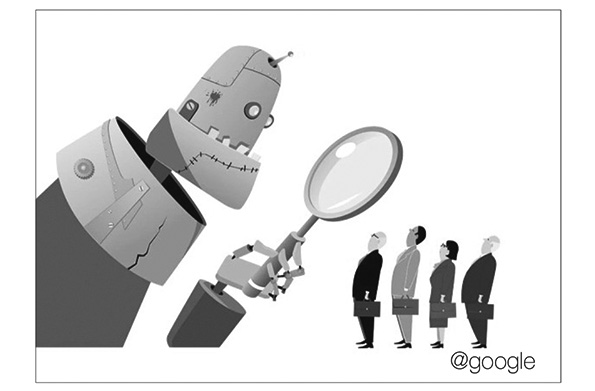
The concept of ‘artificial intelligence’ was first suggested by Alan Turing in 1950. After a chess tournament between Garry Kasparov and IBM’s supercomputer Deep Blue in 1997, people began to show interest in A.I. Twenty years later, Go champion Lee Se-dol lost a match to Google’s Alpha Go, once again attracting people’s attention to A.I. This caused a massive increase in technologies utilizing A.I., such as robots and devices in medical or financial services. Some examples are A.I. speakers, LG’s CLOi, and Samsung’s Bixby. This article will cover A.I.’s use in job recruiting.
Imagine sitting across from an A.I. computer instead of a human interviewer for an interview. It may be hard to imagine, but it’s already happening in reality. Also, there’s a high possibility that A.I. interviews will be the future interview method in various fields. According to Midas IT(Midas Information Technology Co., Ltd.), in 2018, 45 companies attempted A.I. interviews. This year, about 140 companies, three times more than last year, have introduced A.I. interviews in recruiting. Additionally, Kyungbok University and the Korean Military Academy announced that they will be using A.I. interviews to select new students for admission starting in 2020. How do A.I. interviews work, and why do companies want to use them?
Currently, all companies in South Korea are using in AIR, an A.I. recruiting solution developed by Midas IT, so the A.I. interview system in Korea is uniform. The hour-long interview follows a process: facial registration, basic questions, investigative questions, circumstantial questions, ability test, and in-depth questions. InAIR uses V4 technology, which is A.I. technology that recognizes visual, vocal, verbal, and vital information to check the interviewee’s reactions. Also, with P6(Prefrontal Cortex 6) technology, the movements of the prefrontal cortex are measured to analyze and determine a person’s 31 capabilities. Based on the analysis report, it is possible to check whether the interviewee is the right person for the company.
The two biggest reasons firms tend to use A.I. interviews are fairness and efficiency. Artificial technology evaluates people based on their learned data so that subjective assessments and the views of the interviewers from a face-to-face interview can be excluded. In addition, the time and money used to evaluate people can be greatly reduced. An advantage for interviewees is that the interviews are available regardless of time and space. However, negative views also exist. According to the Awareness Survey on A.I. Assessment conducted by the employment portal incruit on 3,171 jobseekers in 2018, 50.9% approved and 49.1% opposed it. Among the people who opposed it, 23.7% answered ‘people should be selected by people’, 22.0% were ‘concerned about judging various personalities with just one standard’, and 13.4% answered ‘they were worried the recruitment system may become a mere scrap of paper due to people sharing the best answers’. One other concern is that the cost burden for jobseekers will increase because paid lectures to prepare for A.I. interviews have started to appear.
CBT had a short interview with Christian Wallraven, an associate professor of the Department of Brain & Cognitive Engineering at Korea University.
Q. What do you think of A.I. interviewing people?
A. For highly constrained jobs with a limited skill set as well as limited responsibilities in terms of safety/security risks, I think that the current state of A.I. interviewing systems may be sufficient since the job interview questions will be highly pre-structured. I do not think that any job that requires a certain degree of autonomous decisions /creativity /innovation /emotional or empathic components can be sufficiently dealt with by those systems.
Q. What do you think the future of A.I. and A.I. interviews will be?
A. Although the future of A.I. is open and hard to predict, I hope that it will move to support humans in all aspects of life (including work life). I sincerely hope that A.I. will not be used to disenfranchise people of their creativity nor lead to job losses across sectors without an idea of how to provide a meaningful substitute for those jobs /career paths.
A.I. interviews are in the initial phase and most of the companies using A.I. in recruiting say that the interview assessments will just be used for references. However, in the future, A.I. will hold a big part in recruitment, creating a large change in the recruitment system. Therefore, we will have to prepare for those changes. Also, we need to watch carefully how A.I. will change our lives.
By Youn Su-o
sy40@cbnu.ac.kr


 All
All Society & Global
Society & Global






 Youn Su-o
Youn Su-o











